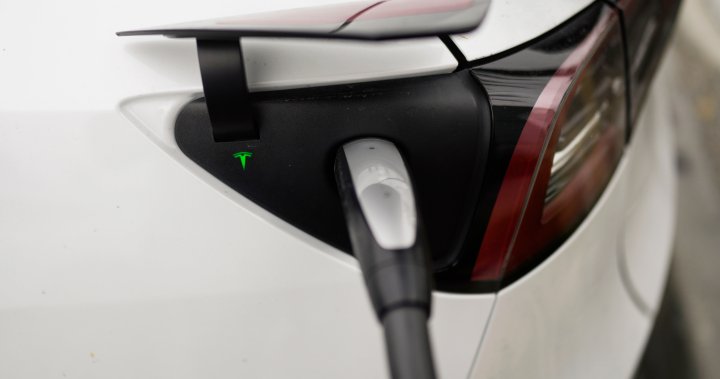
Buying an electric car? What to know about costs, logistics of at-home charging
Global News
Experts say potential buyers often overlook the cost and logistical challenge of setting up at-home charging infrastructure before driving their brand-new car home.
It’s a simple yet important routine for so many Canadians – plugging in their cellphones and smartwatches before bed to ensure they’re fully charged in the morning. Increasingly, there’s another item to add to the list: the car.
Electric vehicles have been gaining in popularity, accounting for three per cent of light vehicle sales in 2022, up from 2.3 per cent a year earlier, according to Statistics Canada. That number is poised to jump, with the federal government phasing out the sale of gas-powered cars by 2035.
Still, experts say potential buyers often overlook the cost and logistical challenge of setting up at-home charging infrastructure before driving their brand-new car home.
The problem, according to Daniel Breton, head of the industry association Electric Mobility Canada, is people have limited knowledge and understanding of electric vehicle chargers.
An Electric Mobility Canada survey found 88 per cent of respondents said they would like their next vehicle to be electric but only 13 per cent claimed to have an in-depth understanding of EVs, including the number of public charging stations, government rebates and battery life, among other aspects.
Installing an at-home charger is not typically a do-it-yourself project, with the electrical system being central to the setup.
Mark Marmer, owner of Signature Electric, said the process begins with consulting a licensed electrical contractor, who can offer advice on where to install the charger and whether existing electric panels are adequate.
The rules vary by region, but installing a charger typically requires a permit from the local electric authority.
